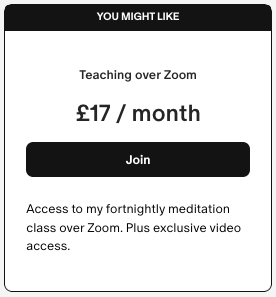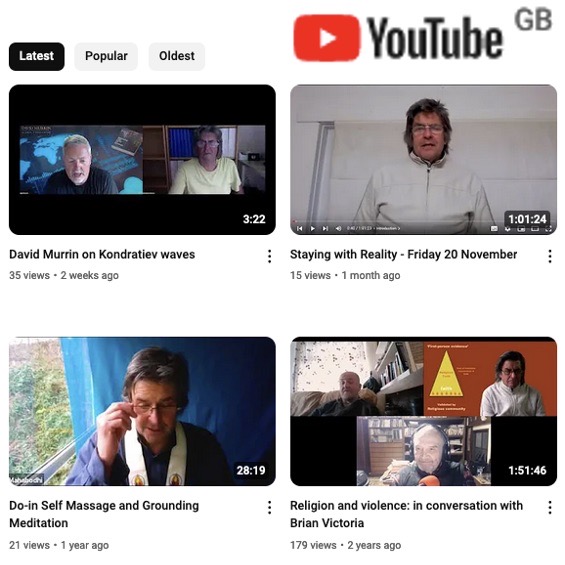Taking Offence
Below is an excerpt from my forthcoming book… © Mahabodhi Burton 2 minute read This excerpt is taken from the chapter ‘The Woke Mind Virus’ and follows on from the Woke Mind Virus. An accelerating trend in taking offence In his book Woke Racism, John McWhorter shares how in 2008, Christian Lander joked in Stuff White People Like that being offended was something a certain brand of white people enjoyed, alongside attending film festivals and wearing vintage T-shirts. He says that today, such a person hearing that joke would likely: ‘launch into a hissing tirade about how there is nothing funny about people trying to dismantle the prevalence of white supremacy and all whites’ “complicitness” in it. If he were to write that book today, Lander would be unlikely to include that joke, which is an indication of the extent to which there is something in the air that we hadn’t seen until quite recently.’[1] He says a critical mass of white liberals no longer quietly pride themselves in knowing they need to be offended about certain things, ‘but now see it as a duty to excoriate and shun those (including black people) who don’t share their degree of offence. To some, all of that may sound like mere matters of manner and texture.’[2] Third Wave Antiracism, McWhorter claims, harms black people ‘in the name of its guiding impulses:’ by insisting that racism is in play when black boys are overrepresented among those suspended or expelled from schools for violence, a practice which not only leads to such violence persisting but a declining skillset among the young black population. And white liberals are complicit in this affair. The high priests of Woke today: Joel Kotkin’s Clerisy (See Chapter 3,) tell us just how we should speak and think. Religion though, McWhorter contends, has a place neither in the classroom, nor in the elite university, nor in our codes of ethics, nor in delineating how members of society express themselves, and ‘almost all of us spontaneously understand that and see any misunderstanding of the premise as backward.’[3] ‘Yet, since about 2015, a peculiar contingent is slowly headlocking us into making an exception, supposing that this particular new religion is so incontestably correct, so gorgeously surpassing millennia of brilliant philosophers’ attempts to identify the ultimate morality, that we can only bow down in humble acquiescence.’[4] The liberal middle-classes are often fully unaware of just what they are doing: ‘Question these people for real and they howl as if having a finger pulled backward. But it isn’t that they don’t want their power taken away: The Elect see themselves as speaking truth...
Guilt
Below is an excerpt from my forthcoming book… © Mahabodhi Burton 15 minute read This excerpt is from the chapter ‘Woke As Old Testament Religion’ and goes into guilt in all its forms, including Buddhism’s view of where guilt is helpful and where it is not. An accelerating trend in taking offense In 2008, Christian Lander joked in Stuff White People Like that being offended was something a certain brand of white people enjoyed, alongside attending film festivals and wearing vintage T-shirts. Today, such a person hearing that joke would likely: ‘launch into a hissing tirade about how there is nothing funny about people trying to dismantle the prevalence of white supremacy and all whites’ “complicitness” in it. If he were to write that book today, Lander would be unlikely to include that joke, which is an indication of the extent to which there is something in the air that we hadn’t seen until quite recently.’[1] A critical mass of white liberals no longer quietly pride themselves in knowing they need to be offended about certain things, ‘but now see it as a duty to excoriate and shun those (including black people) who don’t share their degree of offense. To some, all of that may sound like mere matters of manner and texture.’[2] Third Wave Antiracism, McWhorter claims, harms black people in the name of its guiding impulses: in insisting that it is racism when black boys are overrepresented among those suspended or expelled from schools for violence, ceasing to suspend or expel perpetrators only leading to violence persisting and a declining skillset among the young black population, which white liberals are complicit in. The high priests of Woke today: Joel Kotkin’s Clerisy (See Chapter 3) tell us just how we should speak and think. Religion, McWhorter contends, has no place in the classroom or elite university, nor in our codes of ethics, nor in delineating how all members of society are to express themselves, and ‘almost all of us spontaneously understand that and see any misunderstanding of the premise as backward.’[3] ‘Yet, since about 2015, a peculiar contingent is slowly headlocking us into making an exception, supposing that this particular new religion is so incontestably correct, so gorgeously surpassing millennia of brilliant philosophers’ attempts to identify the ultimate morality, that we can only bow down in humble acquiescence.’[4] The liberal middle-classes are often fully unaware of just what they are doing: ‘Question these people for real and they howl as if having a finger pulled backward. But it isn’t that they don’t want their power taken away: The Elect see themselves as speaking truth to power, not as occupying it....
Safetyism
Below is an excerpt from my forthcoming book… 37 minute read Chapter 2 The views expressed below on safeguarding are the personal views of the author and should not be assumed to represent the views of other members of the Triratna Buddhist Order or any organisation run by members of the Order. Despite our personal views, all order members undertake to abide by the Safeguarding policies of the Buddhist organisations in which we are active. Safetyism ‘Safety is obviously very important. But it is also a principle that, absent countervailing considerations, admits no limit to its expanding dominion. It tends to swallow everything before it. Once you indulge the vitalist perspective with some sympathy, your gaze is shifted and it becomes easier to see the ideological work that “safety” does in our society. Those who invoke safety enjoy a nearly nonrebuttable presumption of public-spiritedness, so a stated concern for safety becomes a curtain behind which various entities can collect rents from perfectly reasonable behavior. The trick is to formulate rules that are at odds with our natural reasonableness (for example, setting the speed limit below the speed dictated by the features of the road). That way you can guarantee a certain rate of infraction, and therefore revenue. If one cares about safety (and who doesn’t?), one does well to take a skeptical look at the safety-industrial complex, and its reliance on moral intimidation to pursue ends other than safety. To do this thoroughly, one must venture beyond the mental universe of risk reduction altogether. That universe takes its bearings from the least competent among us. This is an egalitarian principle that is entirely fitting in many settings, a touchstone of humane society that we rightly take pride in. (One of the people closest to me is significantly disabled, and I am often moved with gratitude for the accommodations our society makes for her.) But if left unchallenged, the pursuit of risk reduction tends to create a society based on an unrealistically low view of human capacities. Infantilization slips in, under cover of democratic ideals. I will insist, on the contrary, that democracy remains viable only if we are willing to extend to one another a presumption of individual competence. This is what social trust is built on. Together, they are the minimal endowments for a free, responsible, fully awake people.’ —Mathew Crawford[1] Safeguarding within a religious community I am a member of the Triratna Buddhist Order, which was founded in 1968 by an Englishman, Sangharakshita. Since that time, over 3,000 people have been ordained into the Order. Our ordination follows a tradition which dates back to time of...







 Users Today : 48
Users Today : 48 Users Yesterday : 23
Users Yesterday : 23 This Month : 506
This Month : 506 Total Users : 13933
Total Users : 13933
